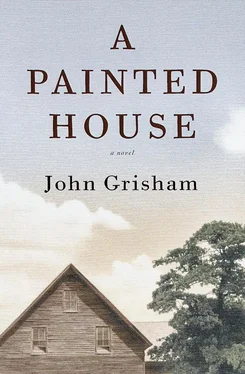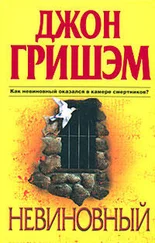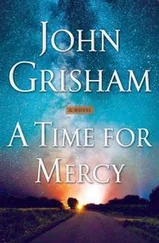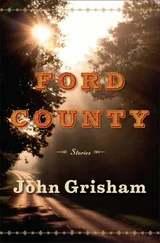Only those two were allowed to weigh the cotton, and if they happened to be deep in a row somewhere, then you got a break while they worked their way back to the trailer. I saw neither of them, and the idea of a nap flashed before me.
The Spruills had gathered at the east end of the trailer, in the shade. They were sitting on their bulky cotton sacks, resting and looking at Trot, who, as far as I could tell, hadn’t moved more than ten feet during the entire day.
I freed myself from the shoulder strap of my cotton sack and walked to the end of the trailer. “Howdy,” one of the Spruills said.
“How’s Trot?” I asked.
“Reckon he’ll be all right,” Mr. Spruill said. They were eating crackers and Vienna sausages, a favorite pick-me-up in the fields. Sitting next to Trot was Tally, who completely ignored me.
“You got anything to eat, boy?” Hank suddenly demanded, his liquid eyes flashing at me. For a second I was too surprised to say anything. Mrs. Spruill shook her head and studied the ground.
“Do you?” he demanded, shifting his weight so that he faced me squarely.
“Uh, no,” I managed to say.
“You mean ‘No sir,’ don’t you, boy?” he said angrily.
“Come on, Hank,” Tally said. The rest of the family seemed to withdraw. All heads were lowered.
“No sir,” I said.
“No sir what?” His voice was sharper. It was obvious Hank enjoyed picking fights. They’d probably been through this many times.
“No sir,” I said again.
“You farm people are right uppity, you know that? You think you’re better than us hill folk ’cause you have this land and ’cause you pay us to work it. Ain’t that right, boy?”
“That’s enough, Hank,” Mr. Spruill said, but he lacked conviction. I suddenly hoped Pappy or my father would appear. I was ready for these people to leave our farm.
My throat constricted, and my lower lip began to shake. I was hurt and embarrassed and didn’t know what to say.
Hank wasn’t about to be quiet. He reclined on an elbow, and with a nasty smile said, “We’re just one notch above them wetbacks, ain’t we, boy? Just hired labor. Just a bunch of hillbillies who drink moonshine and marry our sisters. Ain’t that right, boy?”
He paused for a split second as if he really wanted me to respond. I was tempted to run away, but I just stared at my boots. The rest of the Spruills may have felt sorry for me, but none of them came to my rescue.
“We got a house nicer than yours, boy. You believe that? A lot nicer.”
“Quiet down, Hank,” Mrs. Spruill said.
“It’s bigger, got a long front porch, got a tin roof without tar patches, and you know what else it’s got? You ain’t gonna believe this, boy, but our house’s got paint on it. White paint. You ever see paint, boy?”
With that, Bo and Dale, the two teenagers who rarely made a sound, began chuckling to themselves, as if they wanted to appease Hank while not offending Mrs. Spruill.
“Make him stop, Momma,” Tally said, and my humiliation was interrupted, if only for a second.
I looked at Trot, and to my surprise he was resting on his elbows, his eyes as wide as I’d ever seen them, absorbing this one-sided little confrontation. He seemed to be enjoying it.
Hank gave a goofy grin to Bo and Dale, and they laughed even louder. Mr. Spruill also looked amused now. Perhaps he’d been called a hillbilly once too often.
“Why don’t you sodbusters paint your houses?” Hank boomed in my direction.
The word “sodbusters” hit their nerves. Bo and Dale shook with laughter. Hank bellowed at his own punch line. The entire bunch seemed on the verge of knee-slapping when Trot said, with as much volume as he could muster, “Stop it, Hank!”
His words were slurred slightly so that “Hank” came out “Hane,” but he was clearly understood by the rest of them. They were startled, and their little joke came to an abrupt end. Everyone looked at Trot, who was glaring at Hank with as much disgust as possible.
I was on the verge of tears, so I turned and ran past the trailer and along the field road until I was safely out of their sight. Then I ducked into the cotton and waited for friendly voices. I sat on the hot ground, surrounded by stalks four feet tall, and I cried, something I really hated to do.
The trailers from the better farms had tarps to hold the cotton and keep it from blowing onto the roads leading to the gin. Our old tarp was tied firmly in place, securing the fruits of our labor, ninety pounds of which had been picked by me over the past two days. No Chandler had ever taken a load to the gin with bolls flying out like snow and littering the road. Lots of other folks did, though, and part of the picking season was watching the weeds and ditches along Highway 135 slowly grow white as the farmers hurried to the gin with their harvest.
With the loaded cotton trailer dwarfing our pickup, Pappy drove less than twenty miles an hour on the way to town. And he didn’t say anything. We were both digesting our dinner. I was thinking about Hank and trying to decide what to do. I’m sure Pappy was worrying about the weather.
If I told him about Hank, I knew exactly what would happen. He’d march me down the front yard to Spruillville, and we’d have an ugly confrontation. Because Hank was younger and bigger, Pappy would have in his hand a stick of some sort, and he’d be very happy to use it. He’d demand that Hank apologize, and when he refused, Pappy would start the threats and insults. Hank would misjudge his opponent, and before long the stick would come into play. Hank wouldn’t have a prayer. My father would be forced to cover the Chandler flanks with his twelve-gauge. The women would be safe on the porch, but my mother would once again be humiliated by Pappy’s penchant for violence.
The Spruills would lick their wounds and pack up their ragged belongings. They’d move down the road to another farm where they were needed and appreciated, and we’d be left short-handed.
I’d be expected to pick even more cotton.
So I didn’t say a word.
We drove slowly along Highway 135, stirring up the cotton on the right shoulder of the road, watching the fields where an occasional gang of Mexicans was still working, racing against the dark.
I decided I would simply avoid Hank and the rest of the Spruills until the picking was over and they went back to the hills, back to their wonderfully painted houses and their moonshine and sister-marrying. And at some point late in the winter when we sat around the fire in the living room and told stories about the harvest, I would finally serve up all of Hank’s misdeeds. I’d have plenty of time to work on my stories, and would embellish where I deemed appropriate. It was a Chandler tradition.
I had to be careful, though, when telling the painted house story.
As we neared Black Oak, we passed the Clench farm, home of Foy and Laverl Clench and their eight children, all of whom, I was certain, were still in the fields. No one, not even the Mexicans, worked harder than the Clenches. The parents were notorious slave drivers, but the children seemed to enjoy picking cotton and pursuing even the most mundane chores around the farm. The hedge rows around the front yard were perfectly manicured. Their fences were straight and needed no repair. Their garden was huge and its yield legendary. Even their old truck was clean. One of the kids washed it every Saturday.
And their house was painted, the first one on the highway into town. White was the color, with gray trim around the edges and corners. The porch and front steps were dark green.
Soon all the houses were painted.
Our house had been built before the First War, back when indoor plumbing and electricity were unheard of. Its exterior was one-by-six clapboards made of oak, probably cut from the land we now farmed. With time and weather the boards had faded into a pale brown, pretty much the same color as the other farmhouses around Black Oak. Paint was unnecessary. The boards were kept clean and in good repair, and besides, paint cost money.
Читать дальше












